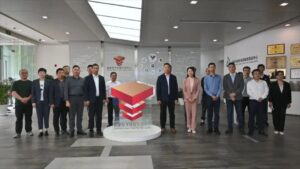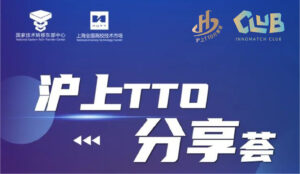The CEO of the company, Xiaolin Tang, is known as the "golden cow" in the Shanghai science and technology circle (technology service intermediary), was engaged in the transformation of scientific and technological achievements in the system, she "went out" after incubation investment or co-startup of several companies are successful. second half of 2015. She vaguely felt the transformation of scientific and technological achievements into a windfall is coming, riding the spring breeze of scientific and technological reform, she set up a business again to help enterprises find good technology, to help a number of good technology to find a market outlet.
On June 20 this year, "Tang Xiaolinians" received a good news - Shanghai, following the "Implementation Opinions on Further Promoting the Transfer and Transformation of Scientific and Technological Achievements" and "Shanghai Regulations on Promoting the Transformation of Scientific and Technological Achievements", "Shanghai Promoting the Transfer and Transformation of Scientific and Technological Achievements" and "Shanghai Regulations on Promoting the Transformation of Scientific and Technological Achievements". The Action Plan (2017-2020) (hereinafter referred to as "Action Plan") is newly released, forming a "trilogy" to promote the transfer of scientific and technological achievements in Shanghai. According to the plan, by 2020, Shanghai will become an important hub of the global technology transfer network.
Tang Xiaolin told "China Economic Times" reporter, compared with other cities, Shanghai's scientific research achievements into policy has a big breakthrough, such as allowing the extraction of not less than 70% of the transformation benefits as rewards and compensation; clear income calculation caliber, using the "net income = income - direct costs of the transformation process". The calculation method does not deduct the upfront R&D investment costs. In addition, "Shanghai has linked the performance contribution of technical brokers to settling in the city, especially by introducing a points system, which is definitely a heavyweight benefit to attracting talent."
The difficulty of transforming scientific and technological achievements is a problem that has long plagued China's scientific research and business community. At one end of the spectrum, it is difficult to innovate within the enterprise, unable to find good technology; at the other end of the spectrum is the stock and incremental amount of increasingly large scientific and technological achievements can not find a way out, can not transfer the "gold content". Now, Shanghai has introduced the "Three Steps" for the transformation of scientific and technological achievements, can we be the first to solve this problem?
Shanghai to build a "seed" sharing platform for the transformation of achievements
Industry insiders, the previous enterprise demand for technology is still very strong, but to the universities and other research units, the enthusiasm is not high, "the transformation of scientific research gains school deduct a little, college and then deduct a little, to the hands of the researchers, there is not much left, do these things also affect the title evaluation, unit internal promotion and other their 'main business'. ', so they're not motivated to engage or invest in this as a formal business contract. In the long run, the business end of the business thinks that the university institutes are not capable of research."
The Shanghai Regulations on Promoting the Transformation of Scientific and Technological Achievements stipulate that 70% of the transformation proceeds are allowed to be reserved for scientific research teams. In practice, different research units are flexible about this ratio, for example, Tongji University in Shanghai has made it clear that 85% of the conversion proceeds goes to the research team to support further scientific research and reward teachers and students.
The generous returns can naturally arouse the enthusiasm of scientific researchers. Ye Yang, Vice Minister of Research Management Department of Tongji University, introduced that recently Tongji University has a series of technical achievements to the market: signed a Technology Patent Transfer Agreement with Runkun (Shanghai) Optical Technology Co. This has become a successful case of the "enterprise + university + independent technology transfer service institutions" "trinity" technology transfer model.
"Last year, the deep involvement of US-based Huya in Fudan University's drug development program to obtain overseas patent licenses for this drug candidate gave us a big boost, so why aren't any Chinese companies interested in this research?" Chen Hongkai, director of the Shanghai Science and Technology Commission's Innovation Service, has some regrets about this, "The flow of information about scientific and technological achievements in China is poor, and we don't know what researchers are working on, especially in the early stages of research projects."
To this end, the Action Plan will promote the sharing and use of information on results as "seeds" for the transformation of results, establish a public service platform for the transformation of scientific and technological results, and open up information on results to the whole society to the maximum extent possible, so that the majority of domestic enterprises and technology transfer service providers can have timely and comprehensive access to information on projects under research in Shanghai universities, research institutions and other units. "In the future, even if it is a university project that has just started, the information should be transferred to intermediaries as soon as possible to find the right enterprise match," Chen Hongkai said.
The executive director of the Shanghai Technology Transfer Association and the general manager of Imperfect Biotech (Shanghai) Co Ltd, Wu Ning, told China Economic Weekly that innovative technologies are risky, and large enterprises often choose to avoid these risks, while it is often SMEs that are willing to do these transfers. In fact, not all technologies can be transformed, and identifying suitable technologies for transformation must meet two criteria: technological breakthroughs and market demand. The establishment of a big data platform can achieve a balance between supply and demand and find the right companies for those innovative technologies.
Technology transfer intermediaries have a chance, "golden cow" will become a good job
"Professional people do professional things." Chen Hongkai feels that the conversion of results should be left to professional service organizations. The Action Plan also suggests that scientific research institutions and institutions of higher learning should establish and improve professional technology transfer services, or entrust independent professional service agencies to carry out the transfer of scientific and technological achievements, to ensure that owners and demanders of scientific and technological achievements receive professional and effective services when carrying out the transformation of scientific and technological achievements.
In 2016, Shanghai Maritime University's "fiber optic sensing online monitoring application" project successfully implemented transformation, and this year the university's Institute of Cold Storage Technology researched a set of composite phase change heat storage technology, which can achieve low-cost and efficient heat recovery, and after making a breakthrough in the laboratory, the team wanted to achieve industrialization. However, in the process of industrialization of scientific research results, we need to face a series of problems such as market validation, product stereotyping, and selection of industrialization mode. Later on, Kechuang Gang, which has rich experience in fruit transformation, cooperated with the team and provided them with fruit transformation services.
During the interview, many organizations in Shanghai all mentioned the same name - the National Technology Transfer Eastern Center. In addition to releasing the source of technology, improving the ability of technology service organizations, stimulating the innovation consciousness of enterprises and guaranteeing policies, technology transfer needs a systematic ecological system platform, and the Eastern Center is the bearer and pathfinder of this function. Tang said frankly that it was because of the Eastern National Technology Transfer Center that she got in touch with Shanghai in the first place, and the ecosystem created by the Center has not been seen anywhere else in China.
According to Fu Guoqing, chief engineer and spokesman of Shanghai Municipal Science and Technology Commission, Shanghai is preparing to build a technology transfer institute to systematically train talents in the transformation of scientific and technological achievements, which is commonly known as "golden cow" in the industry.
"It's not easy to become a 'golden ox', and the threshold is quite high: you need a highly educated background in science and engineering, 3 years of work experience in this industry; you have studied patent law and understand intellectual property rights, and you need a high emotional quotient that can sell the technology, which is a cross-composite talent." Chen Hongkai, director of the Shanghai Science and Technology Commission's Innovation Division, admitted, "The income of foreign outstanding technology transfer talents is much higher than that of the average scientific and technical personnel, but we are still in short supply in this area."
Gong Jin, deputy director of the Science and Technology Division of the Shanghai Municipal Education Commission, said that 19 universities in Shanghai have already set up special centers for the transformation of scientific and technological achievements or similar institutions. Among them, Shanghai University is screening and cultivating such talents from masters of science and engineering, and opening up promotion channels for them to senior titles.




